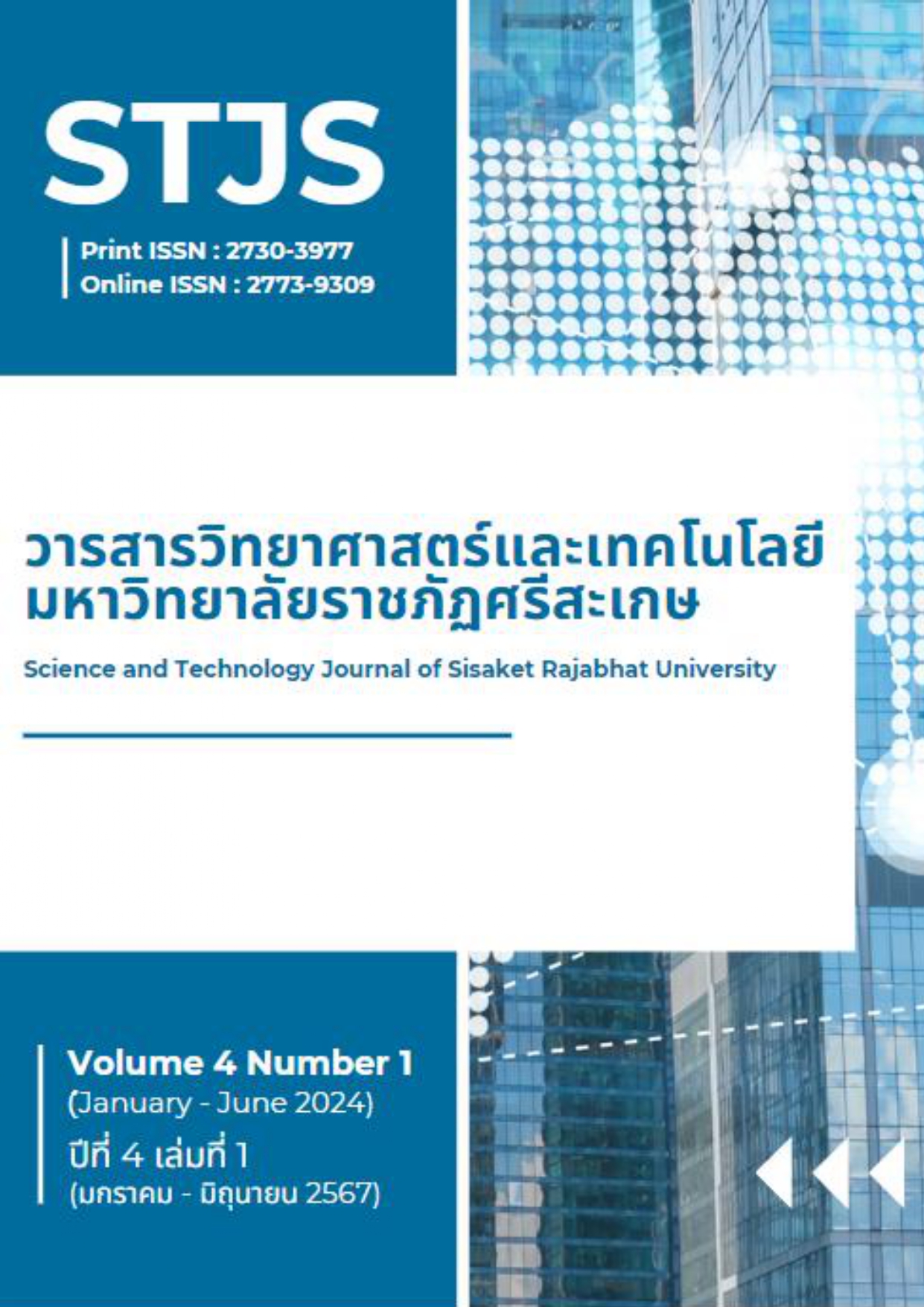การศึกษาบริบทและแนวทางการพัฒนาศักยภาพผู้สูงอายุเพื่อป้องกันภาวะสมองเสื่อมในจังหวัดลำปาง
Main Article Content
บทคัดย่อ
การศึกษาครั้งนี้มีวัตถุประสงค์เพื่อศึกษาสถานการณ์ของชุมชนเพื่อป้องกันภาวะสมองเสื่อม และเสนอแนวทางการป้องกันภาวะสมองเสื่อมในกลุ่มผู้สูงอายุในเขตอำเภอเมือง จังหวัดลำปาง โดยการคัดกรองผู้สูงอายุด้วยแบบคัดกรองภาวะสมองเสื่อม ได้แก่ แบบประเมินภาวะสมองเสื่อม Mini Cog แบบประเมินภาวะสมองเสื่อม IQ Code และแบบประเมินสมรรถภาพสมอง (MMSE) ในกลุ่มผู้สูงอายุที่อยู่ในเขตพื้นที่โรงพยาบาลส่งเสริมสุขภาพประจำตำบลศรีหมวดเกล้า และตำบลม่วงแงว อำเภอเมือง จังหวัดลำปาง จำนวน 150 คน และสัมภาษณ์ผู้มีส่วนเกี่ยวข้องในการป้องกันภาวะสมองเสื่อม จำนวน 24 คน ผลการวิเคราะห์ SWOT Analysis พบว่า จุดแข็งในการป้องกันภาวะสมองเสื่อม ได้แก่ การออกกำลังกายเป็นประจำ การรับประทานอาหาร การทำกิจกรรมบริหารสมอง และการพักผ่อนอย่างเพียงพอ จุดอ่อน ได้แก่ การขาดความรู้เกี่ยวกับการป้องกันภาวะสมองเสื่อมที่ถูกต้อง ผู้สูงอายุขาดความตระหนักในการดูแลตนเอง การสูบบุหรี่ และดื่มสุรา รวมถึงสถานภาพทางเศรษฐกิจของครอบครัว นอกจากนี้ยังมีอุปสรรคและข้อจำกัดในการป้องกันภาวะสมองเสื่อม คือ การขาดแคลนบุคลากรสาธารณสุข แนวทางการป้องกันภาวะสมองเสื่อมในกลุ่มผู้สูงอายุ แบ่งได้ออกเป็น 3 ระดับ ได้แก่ ระดับตนเอง/ครอบครัว คือ ผู้สูงอายุควรดูแลตนเองให้มีสุขภาพดีอย่างสม่ำเสมอ หลีกเลี่ยงสิ่งที่อาจทำให้เกิดอันตรายต่อสมอง ระดับชุมชน/สังคม คือ จัดให้มีระบบประเมินและคัดกรองภาวะสมองเสื่อมในผู้สูงอายุ เพื่อนำไปสู่การพัฒนาระบบการดูแลและป้องกันภาวะสมองเสื่อมที่เหมาะสมกับกลุ่มเสี่ยงในระดับต่างๆ ระดับประเทศ คือ การจัดสรรบุคคลากรทางด้านการแพทย์ให้เพียงพอต่อการดูแลสุขอนามัยของประชาชนอย่างทั่วถึง
Article Details

อนุญาตภายใต้เงื่อนไข Creative Commons Attribution-NonCommercial-NoDerivatives 4.0 International License.
เนื้อหาและข้อมูลในบทความที่ลงตีพิมพ์ใน Journal of SciTech-ASEAN ถือเป็นข้อคิดเห็นและความรับผิดชอบของผู้เขียนบทความโดยตรงซึ่งกองบรรณาธิการวารสาร ไม่จำเป็นต้องเห็นด้วย หรือร่วมรับผิดชอบใด ๆ
บทความ ข้อมูล เนื้อหา รูปภาพ ฯลฯ ที่ได้รับการตีพิมพ์ใน Journal of SciTech-ASEAN ถือเป็นลิขสิทธิ์ของ Journal of SciTech-ASEAN หากบุคคลหรือหน่วยงานใดต้องการนำทั้งหมดหรือส่วนหนึ่งส่วนใดไปเผยแพร่ต่อหรือเพื่อกระทำการใด จะต้องได้รับอนุญาตเป็นลายลักษณ์อักษรจาก Journal of SciTech-ASEAN ก่อนเท่านั้น
เอกสารอ้างอิง
Adamowicz, DH., & Lee, EE. (2023). Dementia among older people with schizophrenia: an update on recent studies. Current Opinion in Psychiatry, 36(3), 150-155.
Aekplakorn, V., et al. (2016). Thai National Health Examination Survey 5th. Nakornpathom: Mahidol University. (In Thai)
Alty, J., Farrow, M., & Lawler, K. (2020). Exercise and dementia prevention. Practical neurology, 20(3), 234-240.
Aranda, MP., Kremer, IN., Hinton, L., et al. (2021). Impact of dementia: Health disparities, population trends, care interventions, and economic costs. Journal of the American Geriatrics Society, 69(7), 1774-1783.
Department of Older Persons. (2022). Situation of The Thai Older Persons 2022. Nakornpathom: Mahidol University. (In Thai)
Dominguez, LJ., Veronese, N., Vernuccio, L., et al. (2021). Nutrition, physical activity, and other lifestyle factors in the prevention of cognitive decline and dementia. Nutrients, 13(11), 4080.
García‐Vivar, C., Konradsen, H., Svavarsdóttir, EK., et al. (2023). Healthcare interventions for older people with dementia and family caregivers in Europe: A scoping review. International journal of nursing practice, e13172.
Ghahremani, M., Nathan, S., Smith, EE., et al. (2023). Functional connectivity and mild behavioral impairment in dementia‐free elderly. Alzheimer's & Dementia: Translational Research & Clinical Interventions, 9(1), e12371.
Grande, G., Qiu, C., & Fratiglioni, L. (2020). Prevention of dementia in an ageing world: Evidence and biological rationale. Ageing Research Reviews, 64, 101045.
Hachinski, V., & Avan, A. (2022). From Dementia to Eumentia: A New Approach to Dementia Prevention. Neuroepidemiology, 56(3), 151-156.
Livingston, G., Huntley, J., Sommerlad, A., et al. (2020). Dementia prevention, intervention, and care: 2020 report of the Lancet Commission. The Lancet, 396(10248), 413-446.
Ministry of Health. (2022). Report according to indicators at the NCD clinicplus level in 2021 [Online]. Retrieved February 12, 2022, from: https://lpg.hdc.moph.go.th/hdc/reports/report.php?source
Perneczky, R. (2019a). Dementia prevention and reserve against neurodegenerative disease. Dialogues in Clinical Neuroscience, 21(1), 53-60.
Perneczky, R. (2019b). Dementia treatment versus prevention. Dialogues in clinical neuroscience, 21(1), 43-51.
Solomon, A., Handels, R., Wimo, A., et al. (2021). Effect of a multidomain lifestyle intervention on estimated dementia risk. Journal of Alzheimer's Disease, 82(4), 1461-1466.
Takao, M., Maki, Y., and Suzuki, T. (2021). Effect of financial incentives for participation in dementia prevention and support activities: results of a web survey with persons aged 60 and older. Psychogeriatrics, 21(3), 387-395.
Toivonen, K., Charalambous, A., and Suhonen, R. (2023). A caring and living environment that supports the spirituality of older people with dementia: A hermeneutic phenomenological study. International Journal of Nursing Studies, 138, 104414.
Wongsaree C., & Peaunthong, S. (2018). Dementia Syndrome in the Elderly: Nursing Care and Caring for Relatives Caregiver. HCU Journal, 22(43), 166-179. (In Thai)
World Health Organization. (2019). Risk reduction of cognitive decline and dementia [Online]. Retrieved February 12, 2024, from: https://www.ncbi.nlm.nih.gov/books/NBK542796/


